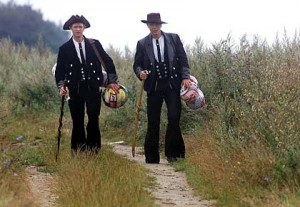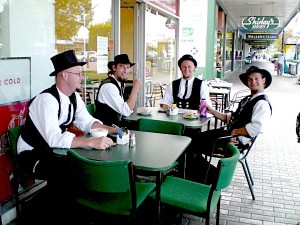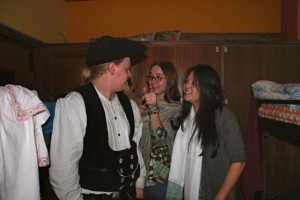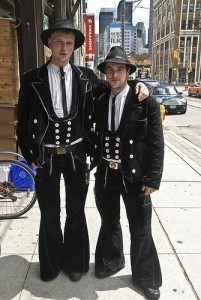In this day and age of budget flights, all inclusive hotel, airport pickups, package tours, luxury hostels, bus tours across Europe the term backpacker is a little outdated. Indeed the concept of packing minimal luxuries, a travel diary, a Lonely planet book and some tunes on your MP3/CD or even mini cassette walkman just doesn´t have the same hipness about it anymore. Why would you when you can check Pininterest , Facebook your friends from your Iphone 4S or substitute that Sleeper carriage reservation on Interrail for a Busabout pickup from outside your state of the art designer art hostel ?
There is nothing wrong with this and if it saves , time and money and you can get the best tip for a restaurant by clicking on your Tripadvisor app in the airport terminal why would you bother trapsing all over the town looking for the best German local restaurant or indeed bother asking a local his or her opinion ?
I always thought “Getting lost ” or stepping out of ones comfort zone was the best way to find oneself. Just buying a seat on the bus, arriving in the town or village or city and trying to explore or meet others , locals and fellow travellers was all part of an exciting adventure. You learn from your mistakes, you can experience the unknown and get to know your limits and capabilities. While I felt I was pretty adventurous, daring and cool there are others out there who not only have this wandering streak in there soul but follow this path as a tradition and part of their destiny or coming of age.
Maybe you´ve seen these mysterious young men clad in black with a swag on their shoulder, big hat , golden earrings and broad smiles as you too travelled through the German speaking countries. They are the Journeymen or German “waltz”. They are part of a medieval tradition whereby young carpenters set out with only a bare few coins , a walking stick, a logbook and their wits and skills that they had learnt as an apprentice. They refer to themselves as a “Brotherhood” and still do to this day, while following some strict etiquette and practice. They survive off the good nature of those they meet on their travels lasting 3 years and they are forbidden to not return closer than 50 km´s to their home town except in the case of an emergency.
Their distinctive black attire , white shirts, bell-bottom pants and pleasant demenour makes them instantly recognizable and their codes and good reputation are vital tools to survive, be taken in , fed and sheltered by strangers. They are not allowed to earn money at least they are not supposed to have over 5 euros in their possession. Instead of money they will build , construct, help with manual tasks in return for board as they move from town to town. They are not allowed to pay for buses, flights, trains and while the majority of their travel is by foot they can except rides from strangers.
As mentioned earlier they are a brotherhood and have their own customs and ways. Secret handshakes and certain code words are all part of it to recognize fellow wanderers. That might sound a bit eerie or on the darker side of counter culture but it is infact designed to protect against imposters or the unitiated carpentry apprentice´s. Such is the importance of a good name and reputation that it considered very wrong to teach “The Secrets” to those who are outsiders or who have not successfully completed the apprenticeship in readiness for their 3 year Journey. They will learn many more skills along the way to becoming a master tradesman which helps them with future employment.
Wanderers are required to get a police clearance to begin and The travelling book or Wanderbuch has to be stamped at each town office they have visited as a record of their journey and so they would not be accused of vagrancy as German requires a fixed address. They also must be unmarried, debt free and without children so they will not use this experience as a means to escape responsibilities.
Curiously the tradition was outlawed in the Nazi era like many other unconventional socities and beliefs and bccame quite a difficult practice in the post war economically starved East Germany. The tradition made a comeback after the fall of the wall almost indentical to the medieval brotherhoods and at present there are between 600-800 wanderers in Germany moving from town to town.
If you think it´s not possible to survive without your smart phone or Twitter updates or fret about not making an advanced booking for your holiday in 6mths, maybe you could take a leaf out these guys travel books , throw caution to the wind and see what you might find out there. You might be lucky enough to meet one of these guys on your route and will no doubt have the experiences to swap some 
 REAL travel stories.
REAL travel stories.
